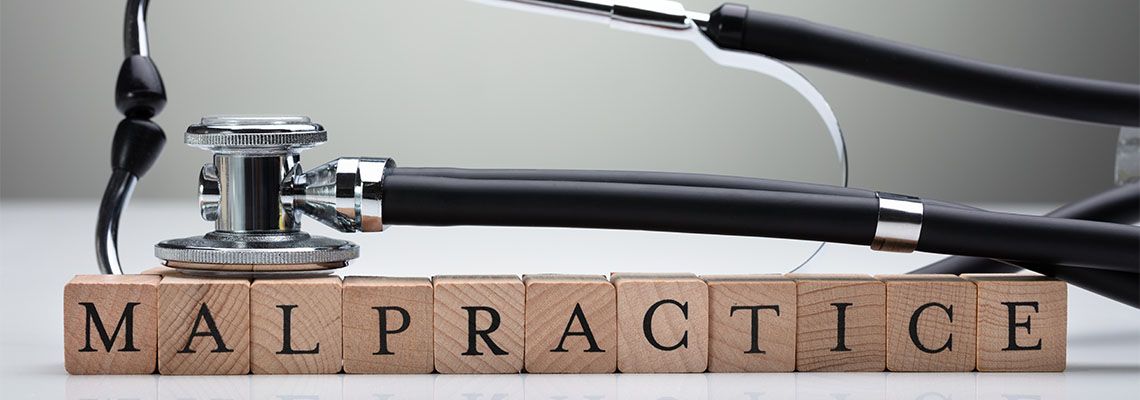
Three Common Causes for Medical Malpractice Claims
When you receive treatment from medical professionals, you put your full faith in them. You believe that once you have undergone a procedure or treatment, you will be better than you were before. However, sometimes, someone is negligent in their care. They do or don’t do certain things that would ensure your safety. In those cases, you must turn to the law for help.
In 2022, there were more than 1,500 reports of adverse actions reported by patients in Colorado. Some 100 medical malpractice payments, either by settlement or trial judgment, were paid to those who filed malpractice claims. It seems like it should be a straightforward situation. A healthcare provider’s negligence leads to injury or death of a patient, and the patient or their family should be compensated for the damages they cause. However, it is never easy. Insurance companies facing high-dollar payouts do everything they can to deny or devalue medical malpractice claims.
At Gama Law Firm LLC, we know that injured patients and their families can feel like David up against the insurance company’s Goliath. We welcome the challenge to fight for justice for our clients in Aurora, Centennial, Denver, Castle Pines, and Parker, Colorado. Our experience representing medical malpractice plaintiffs gives us a big slingshot.
What Should I Know About Medical Malpractice in Colorado?
To understand medical malpractice in Colorado, you should understand what “standard of care” means. Doctors, hospital staff, and other healthcare professionals are required to deliver a standard of care that ensures the safety of their patients. If a provider fails to deliver the acceptable standard of care, either by doing something they should not have or failing to do something they should have, they commit medical negligence. If that negligence results in the serious injury or death of a patient, it constitutes medical malpractice.
In Colorado, patients or their families (if the patient is incapacitated or dies) have two years to file a medical malpractice case in court. When the clock begins to tick on those two years can vary in medical malpractice claims. The time limit may not begin on the date of a surgery or procedure, for example. Instead, it may begin once the patient reasonably knew something was wrong.
Let’s say you saw a doctor about a complaint of stomach and abdominal pain. The duty of care doctors owe you is to fully examine you and run any tests necessary to properly diagnose the cause of your complaints. However, the doctor diagnosed you with gluten intolerance without running sufficient tests. Months later, when the pain becomes unbearable, you go to the emergency room where diagnostic imaging shows a mass. Further testing reveals the mass is malignant. Instead of being diagnosed when it was perhaps a stage one cancer, it’s now stage four. In this instance, the malpractice clock begins ticking on the date the cancer was diagnosed, not on the date the doctor diagnosed gluten intolerance.
State law also requires that within 60 days of filing a medical malpractice or wrongful death lawsuit, you, as the plaintiff, must file a “certificate of review.” This step is designed to eliminate malpractice lawsuits without merit. The certificate attests to the fact that your attorney consulted with a licensed medical professional about the alleged negligence, and upon review of your medical records, that professional agrees that negligence resulted in the injuries you have suffered.
As you can see, while you have the right to bring a medical malpractice action in Colorado, the law does not make it easy to pursue. This is why you need an experienced medical malpractice attorney to help you successfully navigate the process.
Three Common Causes That Lead to Medical Malpractice Claims
Of course, every case is unique in its circumstances and its outcomes. However, there are three common causes that lead to medical malpractice claims.
The first is a misdiagnosis by medical staff or a failure to diagnose an injury or condition. If a healthcare provider diagnoses the condition incorrectly and treats that one instead of what is actually wrong, that is a misdiagnosis. If a provider doesn’t diagnose your condition and it is therefore left untreated, that is a failure to diagnose.
The second is a failure to properly treat the diagnosed injury or condition. In this instance, your condition might be diagnosed correctly. However, the provider does not recommend the proper treatment for it. Treatment protocols are part of delivering a reasonable standard of care. If they are not part of a treatment plan, that constitutes negligence.
The third encompasses surgical errors and medication errors. You have probably heard horror stories about the amputation of the wrong limb or leaving surgical sponges or instruments inside a patient. These are surgical errors.
Some malpractice cases stem from medication errors. Medication errors occur when a medication that should have been prescribed is not prescribed, when the wrong medication is prescribed, when a dosage is incorrect, or when medication is improperly administered.
Who Can I Sue for Medical Malpractice?
It is not only doctors who can be sued for medical malpractice. It is any healthcare professional or institution whose negligence contributed to your injuries and damages. This would include nurses, as well as physician specialists, such as anesthesiologists, orthopedic surgeons, and radiologists. It includes physical therapists and other therapists, psychologists, dentists and oral surgeons, chiropractors, and pharmacists. It also includes laboratories, clinics, and hospitals.
Enlist a Trusted Attorney to Help
As you can see, medical malpractice claims are technical and challenging to win. Retaining a knowledgeable and experienced attorney with a record of successful representation of malpractice plaintiffs should be a pivotal part of your legal strategy.
At Gama Law Firm LLC, we offer our clients more than 70 years of combined experience representing those injured by medical negligence in Aurora, Denver, and throughout Colorado. If you want to discuss your potential claim, all you need to do is call our office today to schedule a free case consultation.

